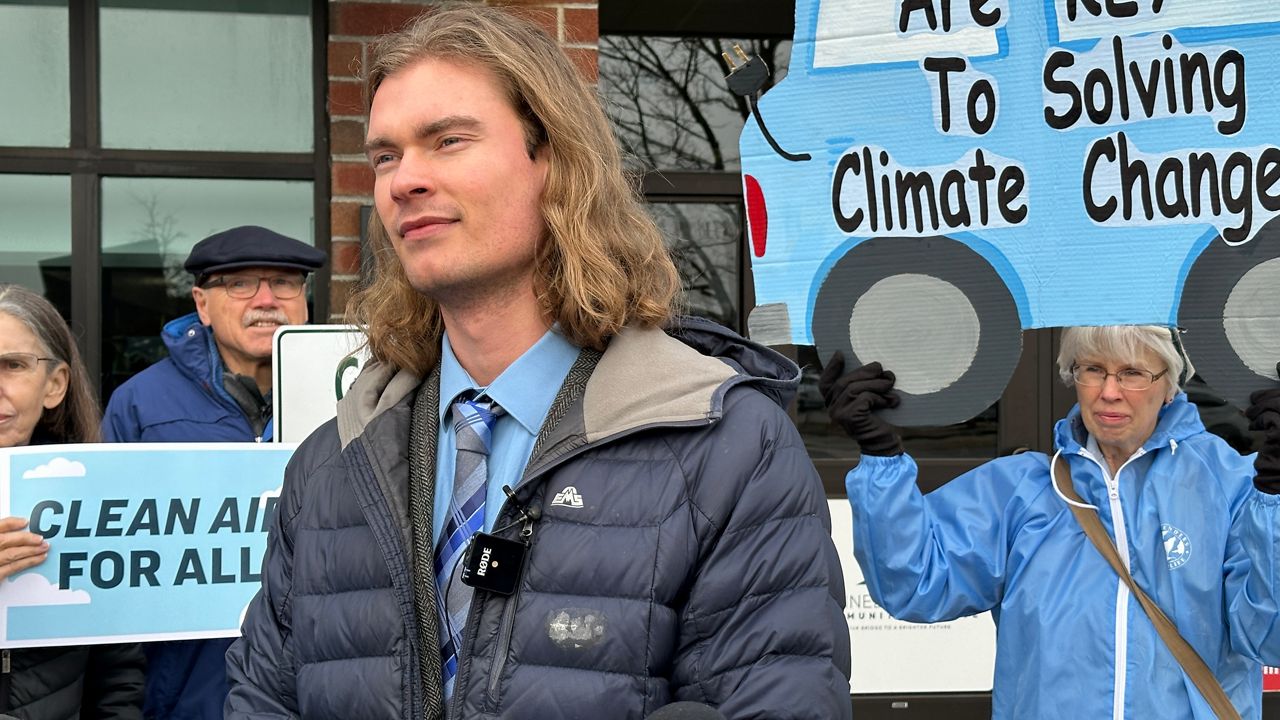A state panel on Wednesday rejected controversial rules that would have required vehicle manufacturers to send increasing numbers of electric vehicles to Maine in hopes of meeting climate goals.
The proposal called for requiring vehicle manufacturers to ensure that 51% of vehicles shipped to Maine were electric by 2028, a percentage required to grow to 82% by 2032.
The goal was to get more electric vehicles on the road to lower the state’s carbon emissions.
The vote was 4-2 against the proposal, with many members expressing doubts about how they intended to vote before rejecting it.
“The ifs, ifs, ifs,” Board of Environmental Protection Chairwoman Susan Lessard said. “Sometimes doing something isn’t the answer. I have too many questions.”
The board rejected the California Advanced Clean Cars II regulations following a proposal put forward last year by the Natural Resources Council in Maine.
Before the board’s vote, those in opposition said Mainers are concerned about how far the vehicles can go between charges, how long it takes to charge a vehicle and whether there are enough charging stations to handle increased demand.
Tom Brown, president of the Maine Automobile Dealers Association, said electric vehicles in Maine represent only 6-7% of sales. He said expecting sales to get to 51% by 2028 is “totally unachievable.”
He said the public is much more comfortable with hybrids.
“There are a lot of questions in the minds of the public,” he said.
On the other side, representatives of the Natural Resources Council of Maine and Conservation Law Foundation emphasized the importance of swift adoption of the rules so Maine can meet its climate goals.
Josh Caldwell, climate and clean energy coordinator for NRCM, said recent severe storms show the impacts of climate change in Maine.
“From an economic and climate perspective these are really critical rules for Maine,” he said.
Emily Green, senior attorney with the law foundation, said the only way Maine will meet its climate goals is to adopt the standards. And she disagrees with those who say lawmakers — not an appointed board — should have the final say.
“It would delay benefits for Mainers, things like cleaner air, saving money on fueling their vehicles, climate benefits,” she said. “There is no time for delay. We really need this rule to be adopted this year.”
Thirteen other states have already adopted the standards, with Green and others arguing that manufacturers will send the cars where necessary to meet the mandates.
When the board first considered the rules in August, it received more than 1,100 public comments. After some revisions, including pushing out the starting date to 2028, another 1,700 people weighed in, Lessard said.
Many of those came from opponents who say the standards are too strict, would stress the state’s electric grid and reduce consumer choice.
Supporters said the move is necessary to help the state meet its climate goals, which include reducing greenhouse gas emissions by 45% by 2030 and 80% by 2050. Transportation accounts for about half of the state’s greenhouse gas emissions.
The rules cover passenger cars, light-duty trucks and medium-duty vehicles.
The rules would have applied only to new vehicles sold, not used vehicles. They are intended to force manufacturers to meet a requirement to provide increasing numbers of zero emission vehicles by certain deadlines.
One of those who testified in opposition on Wednesday was Rep. Mike Soboleski (R-Phillips) who is sponsoring legislation to require these types of mandates to get legislative approval.
Hours before the vote, he said even if the board rejected the current proposal, he would push for his bill to make sure any future rules get legislative approval.
Lawmakers were scheduled to take testimony on the measure Wednesday afternoon.
Even before the hearing, more than a dozen people submitted written testimony on both sides of the issue.
Supporters, including the Maine Municipal Association and Maine Policy Institute, say that the rules should be scrutinized by lawmakers, not a panel appointed by the governor.
“Legislative consent should be required on these matters because elected lawmakers represent — and are accountable to — the people of Maine who send them to Augusta,” Jacob Posik, director of legislative affairs at the conservative policy institute, wrote.
But opponents of the bill, including Maine Climate Action Now, say the standards have already had a thorough public vetting.
“The attempt to undermine the immediate adoption of this rule denies the reality of the electric vehicle boom and leaves Mainers stuck in the past,” wrote Ezra Sassaman, advocacy coordinator of the climate action group.



